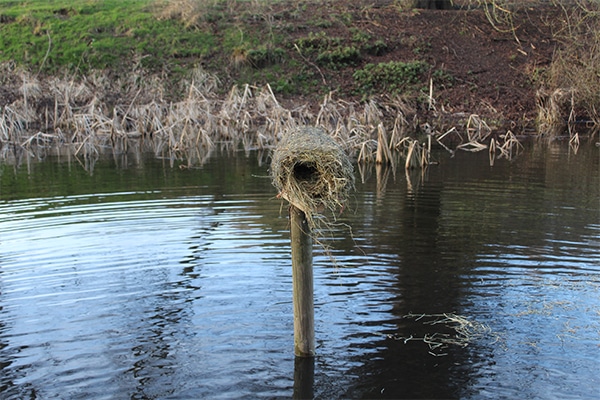
Duck nest monitoring project
The Duck Nest Monitoring Project is a citizen science project dedicated to the conservation of wild mallard populations.
Get information on the legal shooting season for mammals and birds in the UK.
Learn about our current conservation projects and how you can get involved.
Comprehensive information and advice from our specialist firearms team.
Everything you need to know about shotgun, rifle and airgun ammunition.
Find our up-to-date information, advice and links to government resources.
Everything you need to know on firearms law and licensing.
All the latest news and advice on general licences and how they affect you.
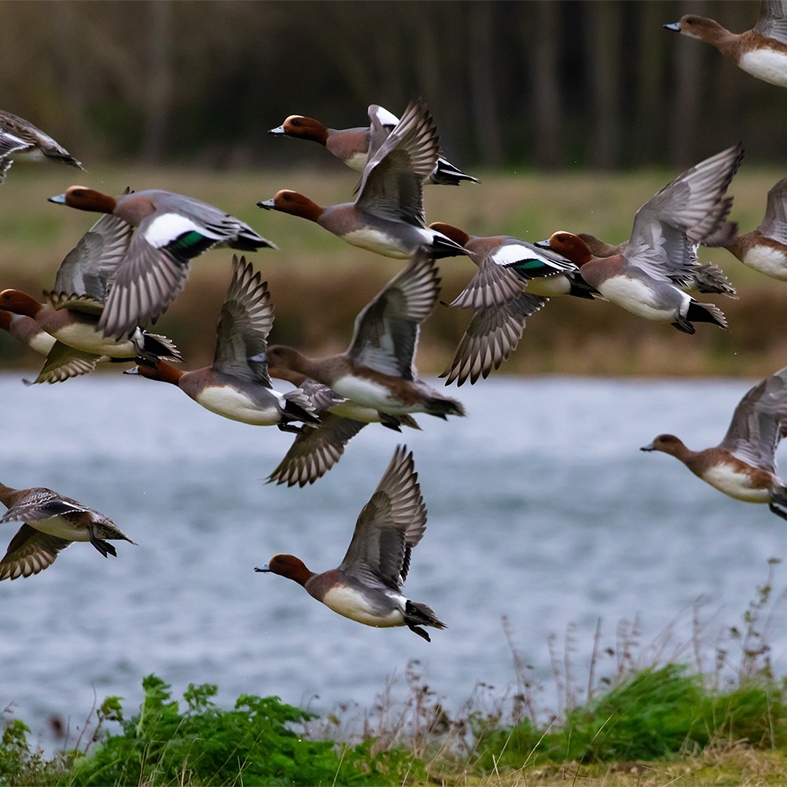

Conservation in Action Conservation projects Project Penelope
Project Penelope is a project led by the Waterfowlers’ Network. This is an international organisation made up of partners aiming to improve data collection, waterfowl habitats and sustainable management of waterbirds.
Project Penelope specifically aims to collect data on the Eurasian wigeon (whose Latin name is Anas Penelope, hence the project name) across the species’ migratory flyway.
Using a combination of traditional (ringing) and modern (GPS-tracking) techniques, this project aims to follow the migration of wigeon and gather data on how they use the European Protected Site (EPS) network and the landscape (EPSs are areas that have been set aside to protect particular species and habitats).
This invaluable information on habitat use, the species movement, and population composition (including reproduction and survival rates), will help in assessing how well our protected sites support wigeon, as well as help to inform decisions regarding sustainable hunting.
Project Penelope launched in 2021 and will run until 2024, with fieldwork taking place in Finland, Denmark and the United Kingdom.
Other project partners include The Danish Hunters’ Association, Aarhus University, Turku University, Helsinki University, and our dedicated volunteers.
The project is funded by the Wildlife Habitat Charitable Trust, The Danish Hunters’ Fund for Nature and the Ministry of Agriculture and Forestry of Finland.
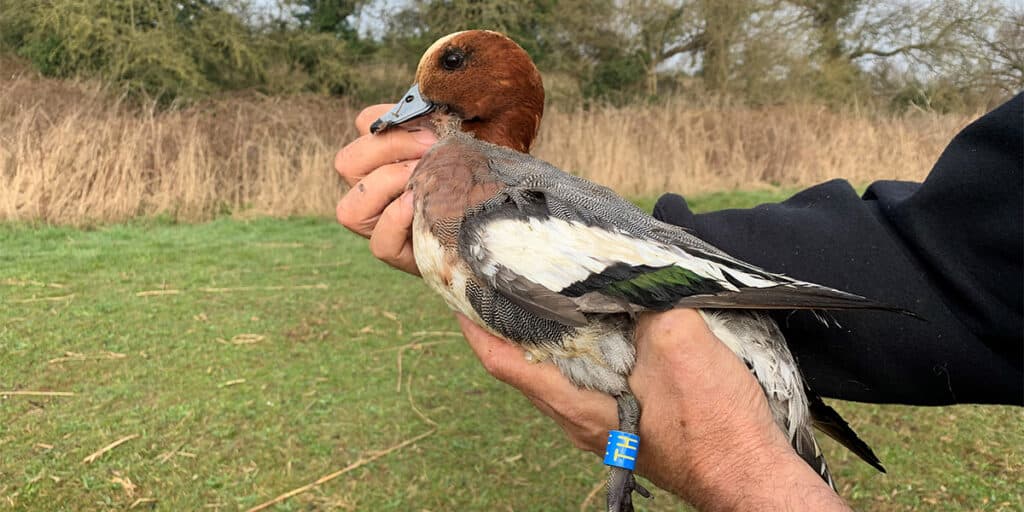
Eurasian wigeon are one of Europe’s most popular quarry ducks, however, the information we have about this species and their movements is lacking or outdated. It is our responsibility as a shooting community to ensure that our quarry populations are healthy.
Project Penelope will provide a basic understanding of the relationships between breeding sites, staging sites (places where migrant birds stop to rest, drink, and eat) and wintering sites (where wigeon go on their migration) and the pressures they face in each location.
By understanding wigeon survival, breeding success and harvest numbers across their range, we can find out where the population needs the most conservation action. In turn this will help guide the practical work, such as habitat creation, that we undertake in the UK.
A key part of Project Penelope is based on sightings of colour-ringed individuals and ring submissions. If you come across any ringed birds, you should submit your findings to the reporting site for this project.
To submit a colour-ring sighting or findings, please submit the details through Project Penelope’s reporting site or email us at BASC.
Sightings of metal-ringed only birds can be submitted through the national ringing scheme through Euring.
So far, 806 wigeon have been colour-ringed and 203 of these birds have been recaptured at wintering grounds where they were originally ringed. There have been 54 re-sightings of ringed birds and seven birds were found dead.
This map (picture below) shows some of the ringing locations in the UK and where the wigeon were recovered in Eastern Europe and further afield. Some of these recoveries of UK-ringed birds were in Belarus, which is a rare and interesting finding.

A total of 70 GPS tags have been deployed in Finland so far. The tracks of the wigeon movement are impressive so far.
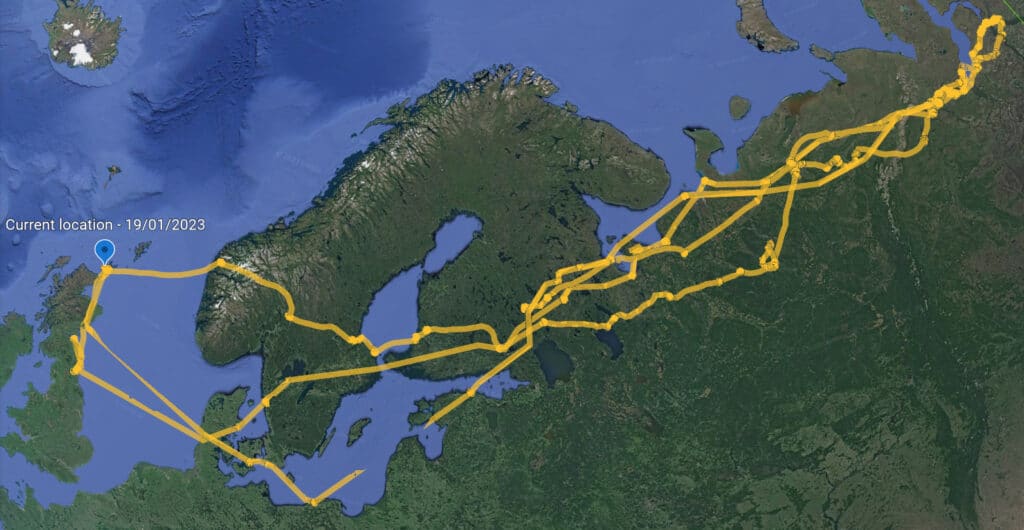

The Duck Nest Monitoring Project is a citizen science project dedicated to the conservation of wild mallard populations.
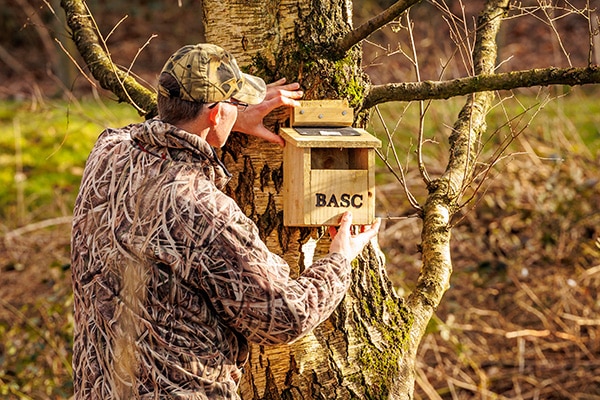
Find out more about the conservation projects we are currently undertaking and how you can get involved.
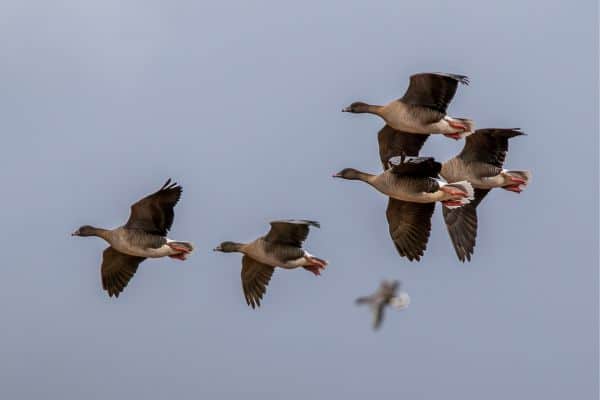
The wing survey is a monitoring project which collects data about shot ducks, geese and waders from wings that are collected by shooters.
Sign up to our weekly newsletter and get all the latest updates straight to your inbox.
© 2023 British Association for Shooting and Conservation. Registered Office: Marford Mill, Rossett, Wrexham, LL12 0HL – Registered Society No: 28488R. BASC is a trading name of the British Association for Shooting and Conservation Limited which is authorised and regulated by the Financial Conduct Authority (FCA) under firm reference number 311937.
If you have any questions or complaints about your BASC membership insurance cover, please email us. More information about resolving complaints can be found on the FCA website or on the EU ODR platform.
This website uses cookies so that we can provide you with the best user experience possible. Cookie information is stored in your browser and performs functions such as recognising you when you return to our website and helping our team to understand which sections of the website you find most interesting and useful.
Strictly Necessary Cookie should be enabled at all times so that we can save your preferences for cookie settings.
If you disable this cookie, we will not be able to save your preferences. This means that every time you visit this website you will need to enable or disable cookies again.
This website uses Google Analytics to collect anonymous information such as the number of visitors to the site, and the most popular pages.
Keeping this cookie enabled helps us to improve our website.
Please enable Strictly Necessary Cookies first so that we can save your preferences!
More information about our Cookie Policy